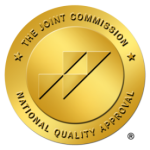In today’s fast-paced world, addiction, and mental health disorders have become increasingly prevalent. For individuals seeking treatment, it is crucial to understand the concept of dual diagnosis—a term used to describe the coexistence of substance abuse or addiction and mental health disorders. This comprehensive blog will delve into the connection between addiction and mental health, shedding light on the complexities of dual diagnosis. As a leading addiction and mental health treatment center in Mesa, AZ, we are committed to providing you with the necessary information to promote understanding, awareness, and effective treatment.
What is Dual Diagnosis?
Dual diagnosis, also known as co-occurring disorders, refers to the simultaneous presence of substance abuse or addiction and a mental health disorder. This condition can be highly challenging to diagnose and treat effectively due to the complex interplay between addiction and mental health. Dual diagnosis can involve various combinations of substance use disorders and mental health disorders, making it essential to recognize and address both aspects during treatment.
The Prevalence of Dual Diagnosis
Research indicates that dual diagnosis is more common than previously thought. According to the Substance Abuse and Mental Health Services Administration (SAMHSA), approximately 9.2 million adults in the United States experience both a mental health disorder and a substance use disorder concurrently. The high prevalence underscores the need for integrated treatment approaches that target both addiction and mental health issues simultaneously.
The Connection Between Addiction and Mental Health
Mental health disorders such as anxiety, depression, post-traumatic stress disorder (PTSD), and bipolar disorder can significantly influence the development and progression of addiction. Individuals experiencing these disorders may turn to substances as a means of self-medication or to alleviate emotional distress. The temporary relief provided by drugs or alcohol can lead to a cycle of dependence and addiction as individuals seek to manage their mental health symptoms.
On the other hand, addiction can exacerbate existing mental health disorders or contribute to the onset of new ones. Substance abuse disrupts the brain’s chemistry and functioning, leading to psychological and emotional imbalances that can trigger or worsen mental health symptoms. Additionally, the consequences of addiction, such as strained relationships, financial problems, and legal issues, can further exacerbate mental health challenges.
Common Dual Diagnosis Combinations
Alcohol Use Disorder and Depression
Alcohol use disorder often coexists with depression. Individuals with depression may turn to alcohol as a way to self-medicate and temporarily alleviate their emotional pain. However, alcohol is a depressant and can intensify depressive symptoms over time, leading to a vicious cycle of drinking and worsening mental health.
Stimulant Abuse and Anxiety Disorders
Stimulant drugs like cocaine and methamphetamine can increase anxiety levels and trigger panic attacks. Individuals with preexisting anxiety disorders are particularly vulnerable to developing a dual diagnosis. Stimulant abuse can exacerbate anxiety symptoms and make it challenging to manage both conditions effectively.
Opioid Addiction and Post-Traumatic Stress Disorder (PTSD)
Opioid addiction and PTSD are frequently intertwined. Individuals with PTSD may misuse opioids to cope with trauma-related symptoms, leading to a cycle of addiction and worsening mental health. The numbing effect of opioids may provide temporary relief, but it ultimately hinders the healing process and perpetuates the dual diagnosis.
Challenges in Dual Diagnosis Treatment
Diagnostic Challenges
Dual diagnosis poses diagnostic challenges due to overlapping symptoms and the potential for substance-induced mental health symptoms. Accurate diagnosis requires a thorough assessment by experienced professionals who can differentiate between substance-induced symptoms and underlying mental health disorders. Proper diagnosis is essential for tailoring an effective treatment plan.
Treatment Considerations
Effective dual-diagnosis treatment involves an integrated approach that addresses both addiction and mental health. Treatment plans may include medication, psychotherapy, support groups, and holistic interventions to promote holistic healing. Each individual’s treatment plan should be tailored to their unique needs, taking into account the specific substances involved, the severity of the mental health disorder, and other relevant factors.
Addressing Underlying Trauma
Many individuals with dual-diagnosis have experienced trauma in their lives, which can contribute to both addiction and mental health disorders. Addressing underlying trauma is crucial in the recovery process. Therapies such as Eye Movement Desensitization and Reprocessing (EMDR) and Trauma-Focused Cognitive Behavioral Therapy (TF-CBT) can help individuals process and heal from past traumatic experiences.
Seeking Help and Treatment Options
Recognizing the signs of dual diagnosis is the first step toward seeking help. Common indicators include mood swings, social isolation, changes in appetite or sleep patterns, and persistent substance use despite negative consequences. If you or someone you know is experiencing these symptoms, it is important to reach out for professional assistance.
Consulting a reputable addiction and mental health treatment center is crucial for comprehensive care. These centers provide evidence-based treatments tailored to individual needs, ensuring a personalized approach to recovery. Professional treatment teams often consist of medical doctors, psychiatrists, psychologists, therapists, and addiction specialists who work collaboratively to address both addiction and mental health disorders effectively.
Therapeutic interventions such as cognitive-behavioral therapy (CBT), dialectical behavior therapy (DBT), and motivational interviewing (MI) are effective in treating dual diagnosis. These evidence-based therapies help individuals develop healthy coping mechanisms, identify triggers, and cultivate resilience. Additionally, family therapy and support groups play a vital role in recovery by providing a supportive network and helping individuals rebuild healthy relationships.
Understanding the connection between addiction and mental health disorders is essential for effective treatment and recovery. Dual diagnosis requires specialized care that addresses both aspects comprehensively. As a leading addiction and mental health treatment center in Mesa, AZ, Revive Recovery Center is dedicated to helping individuals overcome the challenges of dual diagnosis through evidence-based interventions, compassionate support, and a personalized approach to healing. If you or someone you know is struggling with addiction and mental health, don’t hesitate to reach out for help.
Remember, you are never alone on your journey to recovery.





